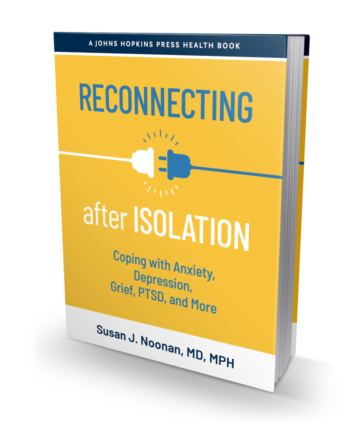January is the time of year when many of us make New Year’s resolutions. I’m personally not a huge fan of that exercise, as many people start out with good intentions and lose the momentum and motivation to follow through as the month progresses. Then they feel guilty and disappointed in themselves for failing. Instead, I encourage others (and myself) to create goals at any time of year, SMART goals that are small and specific, measurable, attainable, relevant to your life and timely with respect to what’s going on with you personally. This increases the chance that you’ll stick with them and achieve success.
Recently I came across something that MIGHT change my mind about New Year’s resolutions – and perhaps yours too – a series of newsletters last week in the New York Times “Well” column by journalist Jancee Dunn called the “7-Day Happiness Challenge”. It is based on research, the ongoing 85 year-long Harvard Study of Adult Development, that finds that strong relationships at all levels are what determines our fulfillment and overall happiness. This is supported by other studies showing that people who are socially connected live longer and are more protected against stress, anxiety and depression, and that loneliness can be harmful to our physical health as well.
The NY Times 7-Day Challenge nicely follows my posting from two months ago discussing the difficulty of making friends in adulthood and offers a few small and specific steps or goals one can take to address this problem. One of the exercises in the 7-Day Challenge that I particularly like is the “8-minute phone call.” It’s easy to do – just reach out to someone you miss or would like to know better and invite them to have an eight-minute phone call with you. That’s enough time to connect, catch up with them and help maintain that friendship until you can meet again in person (the overall goal). Making that small connection is a key component in promoting a healthy emotional life and avoiding the ills of isolation. Eight minutes is not unrealistic in a busy schedule and is certainly do-able. The key is to remain focused on the person and your relationship and not get off on unrelated tangents. And you must honor the time commitment and sign off after 8 minutes as promised, making plans for your next encounter.
Other recommended steps in the 7-Day Challenge include engaging in small talk, where you make an effort to open up to someone you don’t know very well; cultivating your workplace relationships, thus improving your daily experience; and making specific plans on your calendar to interact with others socially. These are all useful steps in building a solid social network you can then nurture and grow.
As quoted in the NY Times article, the Harvard Study’s current Directors, Drs. Bob Waldinger and Marc Shultz, authors of the new book “The Good Life: Lessons from the World’s Longest Scientific Study of Happiness” encourage people to find the time to invest in, nurture and develop our relationships at all levels, and point out that friendships often deteriorate because of neglect. I don’t think this is intentional neglect, more a result of overwhelming and busy lives and lack of prioritizing. Maintaining our relationships is hard work and requires that we make it an ongoing and consistent practice with specific goals. For example, instead of casually saying “oh we should get together” try “How about dinner Wednesday night?” You don’t need to have a huge number of friends or social events, just enough to fulfill you. It’s the frequency and quality of social contacts that matters. The researchers remind us that you don’t need to be extrovert, and that it’s never too late to get started.
Many of us who have a mood disorder, anxiety or other mental illness may find that the NY Times 7-Day Challenge steps are not easy to do. This is particularly true for those who, due to their illness and negative thinking, believe they are not likeable, welcomed by others, and feel marginalized. I encourage you to make an effort anyway, try to identify your goal(s), and take small steps towards accomplishing them. It doesn’t have to be done in seven days as the NY Times Challenge outlines – you could take take seven weeks to do it, working on incorporating one of the above small steps each week. It’s Okay! I urge you to try.
Stay well!
A version of this article was previously posted on Psychology Today

